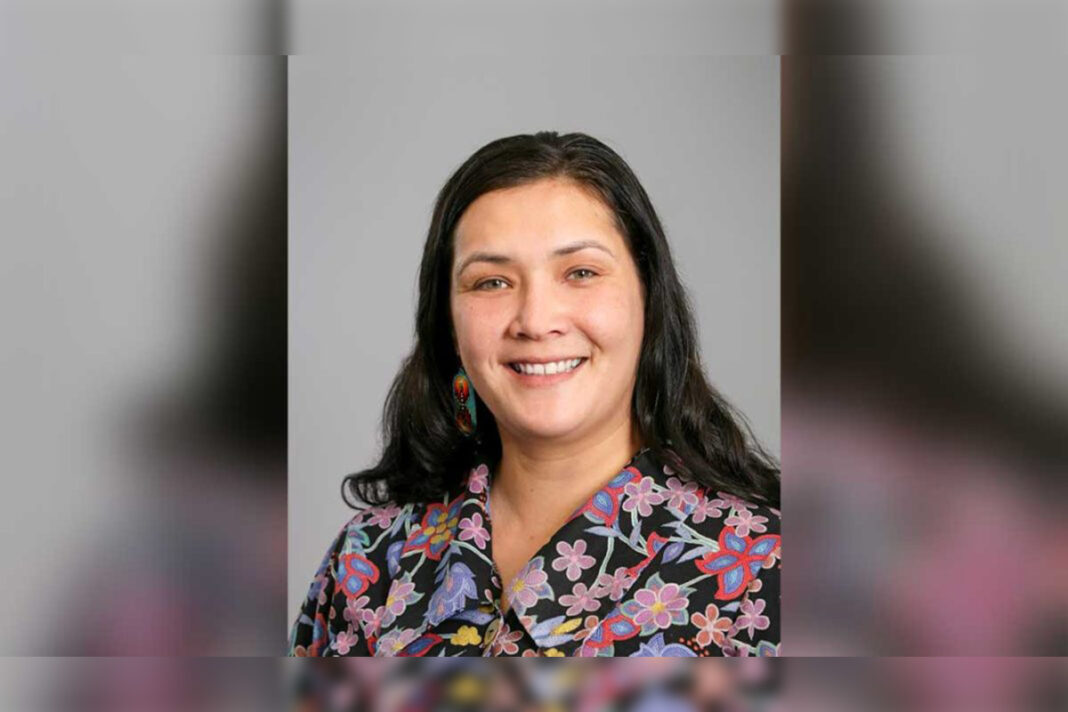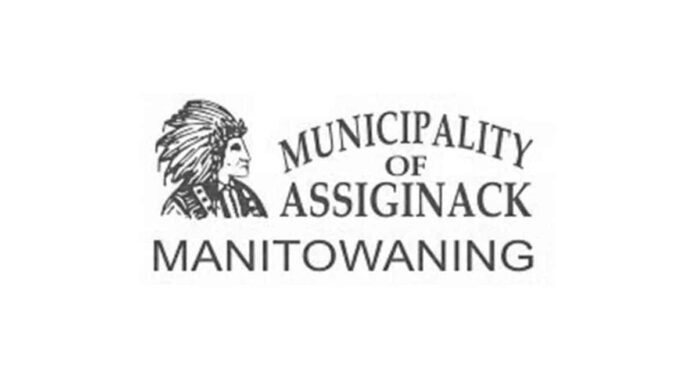NORTH BAY—Both Assembly of First Nations (AFN) National Chief Cindy Woodhouse Nepinak and Linda Debassige, Anishinabek Grand Council Chief took exception with the federal government attributing the country’s rising deficit to costs related to Indigenous claims playing out in court.
The federal government’s fall economic statement, tabled just a few hours after Finance Minister Chrystia Freeland resigned from cabinet and questioned her government’s recent handling of the economy, calls for more than $20 billion in new spending and indicated last year’s deficit has grown to $61.9 billion. The report was tabled by the Honourable Karina Gould, leader of the government in the House of Commons on December 16.
The federal government says that the increased deficit is due to one-time costs, including billions related to Indigenous claims playing out in court.
Grand Council Chief Debassige says that this statement is “utterly ridiculous and tossing the First Nations under the deficit bus and can only be harkened back to the colonial mindset to villainize First Nations for the Crown not paying the bills owed to them for rightful claims which have been settled in and out of court.”
“While the Liberal government is using First Nations as its deficit scapegoat, they remain silent on the billions of Canadian taxpayer dollars continually leaving this country for foreign aid, relief and investments,” said Grand Council Chief Debassige. “They continue to withhold documents relating to the Sustainable Development Technology Canada and its funds despite an order to provide this: resulting in a paralyzed House of Commons costing millions of taxpayers’ dollars being wasted as no business is being done and holding up critical business of Canada including the First Nations Clean Water Act.”
“The Fall economic statement once again falls short of meeting the urgent needs of First Nations,” said National Chief Woodhouse Nepinak. “Critical areas like policing, clean water, housing, education and economic reconciliation remain severely underfunded.” She also took exception to the government attributing the rising deficit to costs related to Indigenous claims. “These statements are misleading as these claims are a result of Canada failing to meet its obligations to First Nations. Instead of spending resources on legal battles that question our inherent rights, the government must prioritize sustained, targeted investments that will grow the Canadian economy and advance reconciliation.”
“Addressing the First Nations infrastructure gap is a necessary step for strengthening Canada’s economy,” said National Chief Woodhouse Nepinak. “As demonstrated in the AFN’s recently released report from the Conference Board of Canada, Economic Impact of Closing the Infrastructure Gap, investments in First Nations infrastructure, housing, broadband access, roads and clean water will benefit all Canadians by improving quality of life, driving economic growth and creating more than 300,000 jobs over the next seven years.”
“Closing the infrastructure gap between First Nations and non-Indigenous Canadians will boost Canada’s GDP by $27.7 billion annually. It would strengthen Canada’s position within the G7, moving us from our current mid-ranking position to a leading spot among the world’s largest economies. Addressing barriers to education, employment and economic participation for First Nations is essential for Canada’s global economic competitiveness,” said National Chief Woodhouse Nepinak.
Grand Council Chief Debassige said, “It bears repeating that the money for settlements are not taxpayer dollars and references to these settlements as a reason for the Liberal government’s deficit is preposterous and is a deflection from reality. They are, in fact, money that is owed from resources taken from our lands which we shared with settler immigrants to our lands. The Anishinabek Nation calls upon the government to apologize for this statement.”
“This type of slander is utterly shameful when the government said that there is no more important relationship than the one with First Nations. The Crown is really showing how it views its relationship with First Nations people. It is not one of reconciliation but one of an adversarial process that we see playing out in this Fall Economic Statement and in land claims and in addition reserve processes,” continued Grand Council Chief Debassige. “The First Nations would not have to rely on the courts and out of court settlements if the Crown had been honourable in the first place. Courts are needed as we can see how the Crown continues to act in the way it has been. The Crown needs to fully disclose the full value of all the resources in our territories to our First Nations going forward.”
Grand Council Chief Debassige says that the decades in settling claims and adding lands to reserves in has led to increased costs to the government which can be directly attributed to Canada’s Department of Justice.
“In most cases it takes over 30 years to add lands to Reserve and about the same time to settle land claims,” Grand Council Chief Debassige continued. “For years, we have been saying these delays are completely unacceptable to First Nations and their members. We have been saying this not only to Liberals but to the NDP and Conservatives as well. The system is broken, and we look forward to working with any new government to resolve these long-standing constitutional issues in a timely manner with the Crown.”
“Just last February, Conservative Leader (Pierre) Poilievre said as it relates to First Nations, ‘the direct result of the Ottawa-knows-best approach has been poverty, substandard infrastructure and housing, unsafe drinking water and despair,’” Grand Council Chief Debassige said. “And Mr. Poilievre’s ‘focus for a new Conservative governments relationship with Indigenous Peoples will be centred around economic reconciliation.’ Economic reconciliation with First Nations will bring Canada out of this deficit and we welcome this type of statement. It falls in line with the Anishinabek Nations’ economic strategy.”
MP Carol Hughes said the release of the Fall economic statement comes at a time when Canadians are still struggling with growing inequality and a cost-of-living crisis. Yet, despite the challenges people are facing the economic statement does very little to alleviate Canadians’ financial concerns.
“This statement clearly shows the government is on the wrong track on affordability, housing, and health care,” said MP Hughes. “There are a few measures that will help, such as expanding automatic tax filing, exempting taxes on the Canada Disability Benefit, and improving credential recognition for healthcare workers. But it mostly feels like tinkering around the edges while corporate interests are making out like bandits, to the tune of $17 billion in corporate tax cuts and continued subsidies for the already-profitable oil-and-gas industry.”
“New Democrats believe it’s time that ordinary Canadians are made the priority,” said MP Hughes. “We can no longer afford corporate handouts and oil company subsidies at a time when people continue to have trouble making ends meet, and Conservative cuts would only make things harder.”





